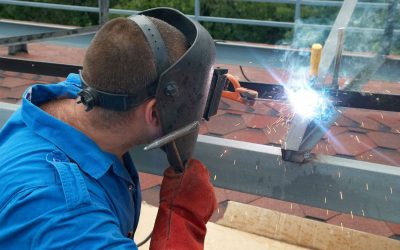Technically, the practice of metalwork involves making any type of object out of metal. But in practice, you are more likely to associate metal products with creating practical product for everyday use. However, metal has also been responsible for the creation of beautiful decorative art pieces.
Early Metal Art
As early as 2500 B.C., people began to use molds to shape molten metal, in order to turn the metal into tools and adornments. Jewelry made from silver and gold became common by the Neolithic Period. During these early periods, jewelry and other artifacts continued to be primarily made from wood, bone, stones and ivory, but the process of pouring molten metal was added to these primitive elements.
Bronze and Iron Age Metal Art
By the Bronze and Iron Age, several different types of materials were added to the metalworker’s skill set. Workers were able to include all of the following in their art:
- Goldsmithing
- Silversmithing
- Ironsmithing
The result created many religious works of art, including early Christian works focusing on the cross, Greek bronze sculptures, Persian goldsmithing and Celtic battle art. By the 12th century, metals such as silver and gold, would be in high demand throughout Europe.
Processes Involved in Metal Art
Regardless of the end product, metalworking involves all of the following processes: hammering, drawing, casting and spinning. Adding decorative pieces to the art can involve any of the following processes:
- Embossing
- Chasing
- Enamel work
- Inlaying
- Gilding
Metal Cutting
Another important step in creating art pieces out of metal is the process of cutting. During cutting, the metal is finally transformed from molten metal into a definite shape. Other approaches may also be used, such as grinding, brazing and soldering, in order to create the final shape of the art piece.








